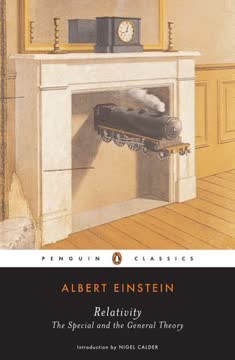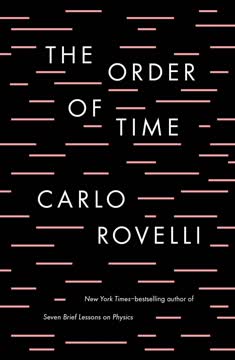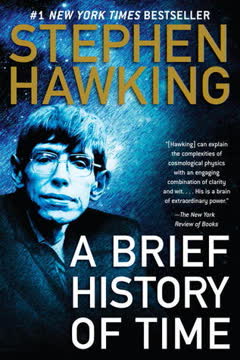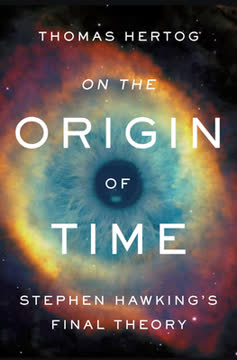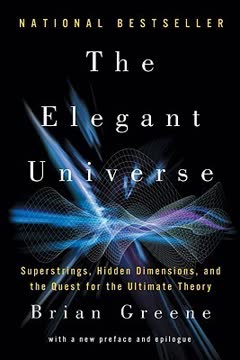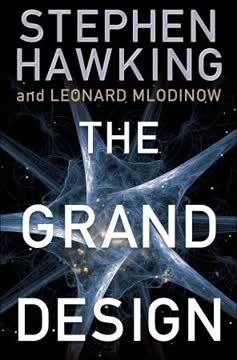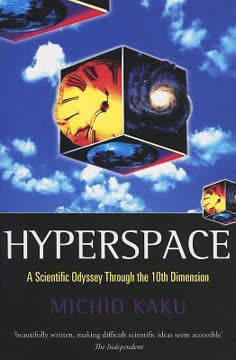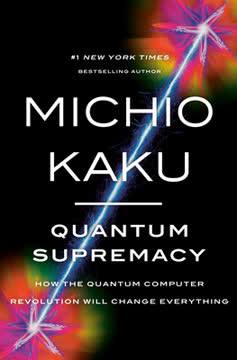ключевых вывода
1. Поиск единой теории всего движет физикой на протяжении веков
"Это должна была быть окончательная теория, единая структура, которая объединила бы все силы космоса и управляла бы всем — от движения расширяющейся Вселенной до мельчайшего танца субатомных частиц."
Исторический контекст. Поиск единой теории восходит к древней Греции, где философы стремились объяснить мир через фундаментальные элементы. Этот поиск продолжился через законы движения и гравитации Ньютона, которые заложили основу для промышленной революции. В XIX веке Максвелл объединил электричество и магнетизм, что привело к электрической эпохе.
Современные разработки. XX век принес две революционные теории:
- Относительность Эйнштейна, объясняющая гравитацию и космос
- Квантовая механика, описывающая субатомный мир
Эти теории, хотя и невероятно успешны в своих областях, остаются несовместимыми. Священный Грааль физики — найти единую теорию, которая объединит все четыре фундаментальные силы: гравитацию, электромагнетизм, сильное и слабое ядерные взаимодействия.
2. Теории относительности Эйнштейна революционизировали наше понимание пространства, времени и гравитации
"Для Эйнштейна, однако, время было больше похоже на реку. Оно могло ускоряться или замедляться, извиваясь среди звезд и галактик."
Специальная теория относительности. Теория Эйнштейна 1905 года показала, что:
- Скорость света постоянна для всех наблюдателей
- Время замедляется для объектов, движущихся с высокими скоростями
- Масса и энергия эквивалентны (E = mc²)
Общая теория относительности. В 1915 году Эйнштейн расширил свою теорию, включив гравитацию:
- Гравитация — это искривление пространства-времени, вызванное массивными объектами
- Это объясняет такие явления, как:
- Искривление света вокруг звезд
- Прецессия орбиты Меркурия
- Существование черных дыр
Общая теория относительности была подтверждена многочисленными наблюдениями, включая обнаружение гравитационных волн в 2015 году.
3. Квантовая механика раскрыла вероятностную природу субатомных частиц
"Эйнштейн писал, что 'чем успешнее становится квантовая теория, тем глупее она выглядит.'"
Основные принципы. Квантовая механика, разработанная в 1920-х годах, описывает поведение материи и энергии на атомных и субатомных масштабах:
- Частицы могут существовать в нескольких состояниях одновременно (суперпозиция)
- Акт измерения влияет на результат (эффект наблюдателя)
- Частицы могут быть запутаны, мгновенно влияя друг на друга на расстоянии
Философские последствия. Эти принципы бросают вызов нашему интуитивному пониманию реальности:
- Является ли Вселенная фундаментально вероятностной?
- Играет ли сознание роль в формировании реальности?
- Существуют ли множественные вселенные, где происходят все возможные исходы?
Несмотря на свою противоречивую природу, квантовая механика невероятно успешна в объяснении явлений и создании технологий, таких как лазеры и транзисторы.
4. Стандартная модель объединяет три из четырех фундаментальных сил, но гравитация остается неуловимой
"Так постепенно из всего этого хаоса возникала новая теория, называемая Стандартной моделью."
Компоненты. Стандартная модель, разработанная в 1970-х годах, описывает все известные элементарные частицы и три из четырех фундаментальных сил:
- Частицы:
- Кварки (6 типов)
- Лептоны (включая электроны и нейтрино)
- Бозоны (частицы-переносчики сил)
- Силы:
- Сильное ядерное взаимодействие (связывает кварки)
- Слабое ядерное взаимодействие (радиоактивный распад)
- Электромагнитное взаимодействие
Успехи и ограничения. Стандартная модель:
- Точно предсказывает взаимодействия частиц
- Привела к открытию бозона Хиггса в 2012 году
- Не включает гравитацию
- Требует множества произвольных параметров
- Не может объяснить темную материю или темную энергию
5. Теория струн предлагает радикально новую структуру для объединения всех сил и частиц
"Теория струн была как нефтяной источник, внезапно извергнувший поток новых уравнений."
Основная концепция. Теория струн предлагает, что все частицы и силы на самом деле являются вибрациями крошечных, одномерных струн:
- Различные режимы вибрации соответствуют различным частицам
- Требует 10 или 11 измерений (большинство из них "свернуты" и невидимы)
- Естественно включает гравитацию, в отличие от Стандартной модели
Проблемы. Несмотря на свою элегантность, теория струн сталкивается с серьезными препятствиями:
- Пока нет экспериментальных доказательств
- Требуются чрезвычайно высокие энергии для прямого тестирования
- Существует множество версий теории (объединенных M-теорией)
- Предсказывает обширный "ландшафт" возможных вселенных
Теория струн остается весьма спорной, с критиками, утверждающими, что она непроверяема, и сторонниками, верящими, что это самый перспективный путь к единой теории.
6. Теория всего может объяснить происхождение и судьбу самой Вселенной
"Возможно, наша Вселенная изначально возникла из квантовых флуктуаций в Ничто."
Космологические последствия. Истинная теория всего имела бы глубокие последствия для нашего понимания космоса:
- Происхождение Вселенной:
- Объяснение Большого взрыва
- Возможное существование мультивселенной
- Эволюция Вселенной:
- Инфляция и расширение
- Формирование галактик и крупномасштабной структуры
- Судьба Вселенной:
- Конечная судьба (Большое замерзание, Большое сжатие или Большой разрыв)
- Возможность циклических вселенных
Нерешенные вопросы. Ключевые загадки, которые может решить единая теория:
- Природа темной материи и темной энергии
- Существование других измерений или вселенных
- Возможность путешествий во времени или червоточин
7. Понимание космоса поднимает глубокие вопросы о смысле и существовании
"Вопрос всех вопросов для человечества, проблема, лежащая за всеми другими и более интересная, чем любая из них, — это определение места человека в Природе и его отношения к Космосу."
Философские последствия. Поиск теории всего неизбежно приводит к глубоким экзистенциальным вопросам:
- Имеет ли Вселенная цель или замысел?
- Есть ли роль для создателя или Бога в космосе?
- Как найти смысл в потенциально конечной Вселенной?
Научная перспектива. Хотя наука не может напрямую ответить на эти вопросы, она предоставляет основу для размышлений:
- Антропный принцип предполагает, что наша Вселенная настроена для жизни
- Теория мультивселенной предлагает бесчисленные вселенные с различными свойствами
- Огромность и красота космоса вдохновляют на благоговение и удивление
В конечном итоге, стремление к единой теории — это не только понимание физического мира, но и нашего места в нем и природы самого существования.
Последнее обновление:
FAQ
What's "The God Equation: The Quest for a Theory of Everything" about?
- Unified Theory Goal: The book explores the quest for a single framework that unites all the forces of the universe, from the motion of galaxies to subatomic particles.
- Historical Journey: It traces the history of physics, from ancient dreams of unification to modern string theory, highlighting key scientific revolutions.
- String Theory Focus: The narrative centers on string theory as the leading candidate for a theory of everything, explaining its potential to unify gravity with quantum mechanics.
- Philosophical Implications: The book also delves into the philosophical questions about the universe's origin, structure, and meaning.
Why should I read "The God Equation: The Quest for a Theory of Everything"?
- Comprehensive Overview: It provides a thorough overview of the history and current state of theoretical physics, making complex ideas accessible.
- Scientific Insight: Readers gain insight into the minds of great physicists like Einstein and Hawking and their contributions to the quest for unification.
- Philosophical Exploration: The book addresses profound questions about the universe's purpose and the existence of a grand design.
- Engaging Narrative: Michio Kaku's engaging writing style makes the intricate world of physics both understandable and fascinating.
What are the key takeaways of "The God Equation: The Quest for a Theory of Everything"?
- Unification Dream: The pursuit of a unified theory has been a long-standing goal in physics, aiming to explain all natural forces with a single equation.
- String Theory's Role: String theory is currently the most promising candidate for a theory of everything, proposing that the universe is made of tiny vibrating strings.
- Challenges and Criticisms: Despite its potential, string theory faces significant challenges, including lack of experimental evidence and the landscape problem.
- Philosophical Questions: The book raises questions about the universe's origin, the possibility of a multiverse, and the role of a creator or grand design.
How does Michio Kaku explain string theory in "The God Equation"?
- Vibrating Strings Concept: Kaku explains that string theory posits the universe is composed of tiny, vibrating strings, with each vibration corresponding to a different particle.
- Dimensionality: The theory suggests that the universe has ten dimensions, with six of them curled up and unobservable at our scale.
- Inclusion of Gravity: Unlike other theories, string theory naturally includes gravity, making it a strong candidate for unifying all forces.
- Supersymmetry: The theory incorporates supersymmetry, which posits a symmetry between particles that make up matter and those that mediate forces.
What are the main criticisms of string theory according to "The God Equation"?
- Lack of Testability: Critics argue that string theory is difficult to test experimentally, as it requires energies far beyond current capabilities.
- Infinite Solutions: The theory predicts a multiverse with an infinite number of solutions, making it hard to determine which one describes our universe.
- Complexity and Elegance: While mathematically elegant, some physicists question whether beauty alone is a reliable guide in physics.
- Anthropic Principle: The reliance on the anthropic principle to explain why our universe is special is seen as unsatisfactory by some scientists.
What is the significance of the "God Equation" in Michio Kaku's book?
- Ultimate Goal: The "God Equation" refers to the ultimate equation that would unify all physical laws, explaining everything from the Big Bang to subatomic particles.
- Einstein's Dream: It represents the culmination of Einstein's quest for a unified field theory, a pursuit that has driven physicists for over a century.
- String Theory's Promise: String theory is seen as the closest approach to achieving this equation, with its potential to unify gravity and quantum mechanics.
- Philosophical Implications: The equation raises questions about the universe's design, purpose, and the existence of a creator.
How does "The God Equation" address the concept of a multiverse?
- Inflation Theory: The book discusses how inflation theory suggests our universe is one of many bubbles in a larger multiverse.
- String Theory's Landscape: String theory's landscape problem implies an infinite number of possible universes, each with different physical laws.
- Philosophical Questions: The multiverse concept challenges traditional notions of a single, unique universe, raising questions about our place in the cosmos.
- Anthropic Principle: The existence of a multiverse is used to explain why our universe appears fine-tuned for life, as we exist in one of the few universes where life is possible.
What are the best quotes from "The God Equation" and what do they mean?
- "The universe is a symphony of strings." This quote encapsulates the essence of string theory, suggesting that all particles and forces are manifestations of vibrating strings.
- "Did God have a choice in creating the universe?" This question, posed by Einstein, reflects the search for a unique, inevitable set of physical laws governing the universe.
- "Sometimes God throws the die where you cannot find them." Hawking's quote highlights the uncertainty and unpredictability inherent in quantum mechanics, especially in black holes.
- "Beauty is truth, truth beauty." This Keats-inspired sentiment underscores the belief that the universe's fundamental laws are both beautiful and true, guiding physicists in their quest.
How does Michio Kaku address the philosophical implications of a theory of everything?
- Existence of God: Kaku explores whether a theory of everything implies a grand design or creator, considering both scientific and theological perspectives.
- Meaning of Life: The book raises questions about whether understanding the universe's fundamental laws can provide insight into life's purpose and meaning.
- Human Understanding: Kaku suggests that a complete theory should be understandable by everyone, allowing all to participate in discussions about existence.
- Limitations of Science: He acknowledges that some questions, like the origin of the laws themselves, may remain beyond the reach of science, entering the realm of metaphysics.
What role does symmetry play in "The God Equation"?
- Unifying Principle: Symmetry is a central theme, seen as the key to unifying all forces and particles in the universe.
- Predictive Power: Symmetry helps predict new particles and phenomena, as seen in the discovery of antimatter and quarks.
- Eliminating Infinities: In string theory, supersymmetry helps cancel out infinities that plague other quantum theories, making it a candidate for a finite theory of gravity.
- Aesthetic Appeal: Symmetry is also associated with beauty in physics, guiding the search for elegant and simple explanations of complex phenomena.
How does "The God Equation" explain the relationship between quantum mechanics and general relativity?
- Conflicting Theories: The book highlights the fundamental conflict between quantum mechanics, which governs the small, and general relativity, which governs the large.
- String Theory's Promise: String theory offers a framework to reconcile these two theories by describing particles as strings, naturally incorporating gravity.
- Quantum Gravity: The quest for a theory of quantum gravity aims to unify these theories, explaining phenomena like black holes and the Big Bang.
- Experimental Challenges: Despite theoretical progress, testing the unification of these theories remains a significant challenge due to the high energies required.
What is Michio Kaku's perspective on the future of string theory?
- Ongoing Evolution: Kaku believes string theory is still evolving, with new mathematical layers being uncovered, suggesting it is not yet in its final form.
- Mathematical Consistency: He argues that the theory's ultimate validation may come from its mathematical consistency and ability to derive known physical constants.
- Experimental Hopes: While direct experimental evidence is challenging, Kaku remains hopeful that future discoveries, like dark matter or mini black holes, may support the theory.
- Patience Required: He emphasizes that scientific progress can be slow, and the ultimate understanding of string theory may take time, much like past scientific revolutions.
Отзывы
Уравнение Бога получает смешанные отзывы: его хвалят за доступный обзор истории физики и теории струн, но критикуют за краткость и недостаток глубины. Некоторые читатели ценят ясные объяснения и философские размышления Каку, в то время как другие считают содержание поверхностным и вводящим в заблуждение. Использование слова "Бог" в названии книги вызывает споры. Обозреватели отмечают, что большая часть материала знакома по другим популярным книгам о физике, с ограниченным количеством новых идей. Заключительные главы о теории струн и её последствиях считаются самыми интересными, хотя и слишком краткими.
Similar Books
